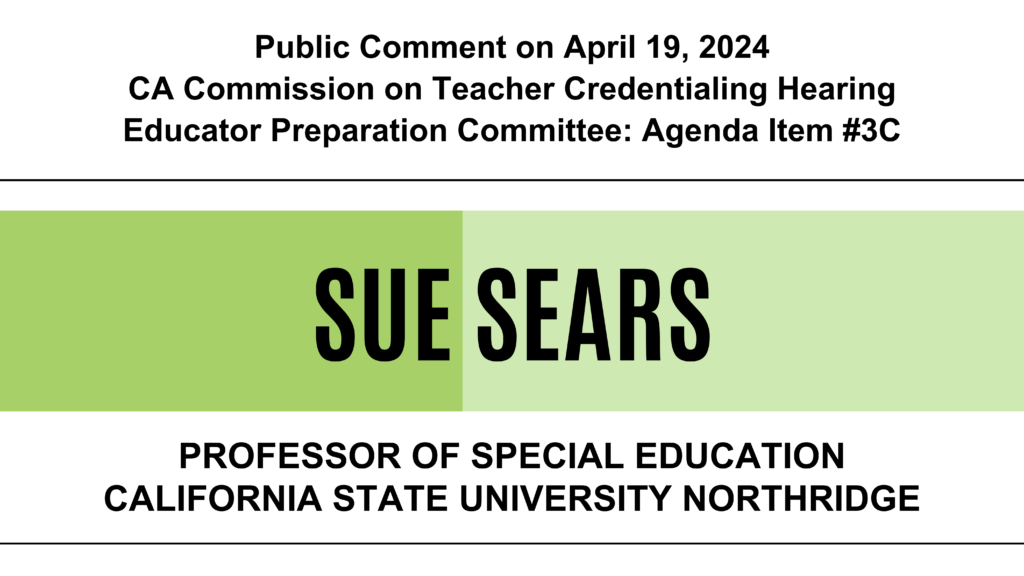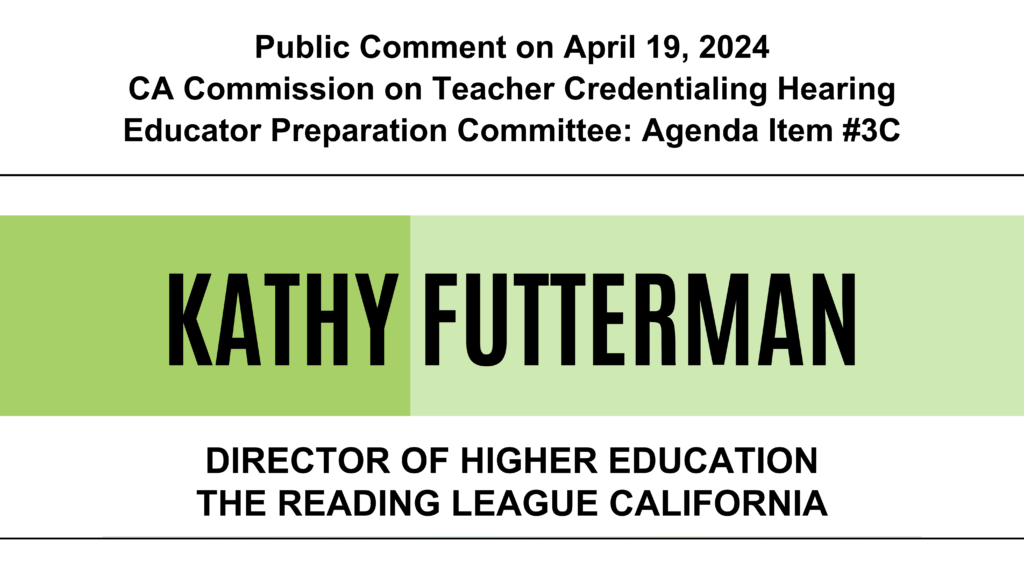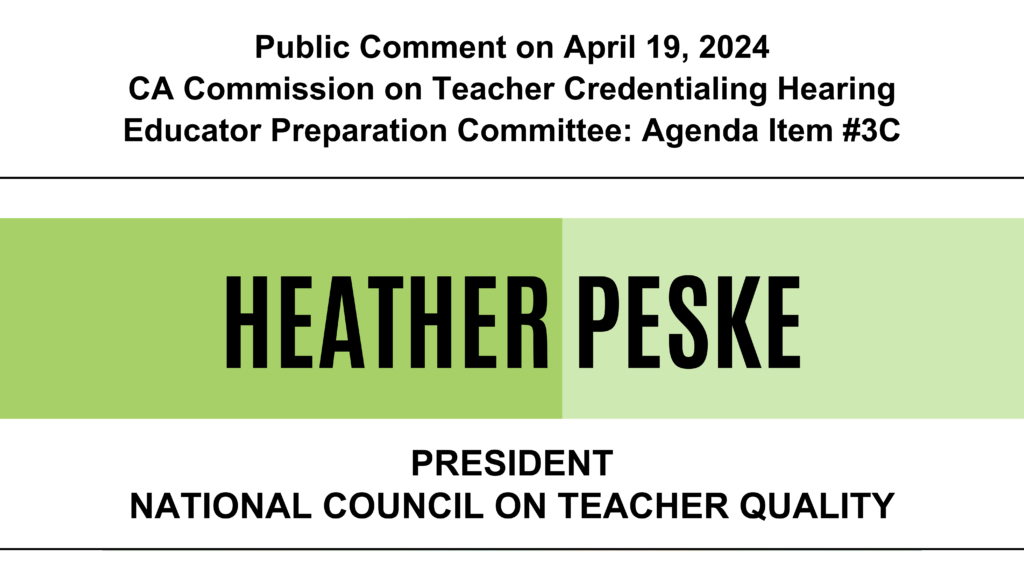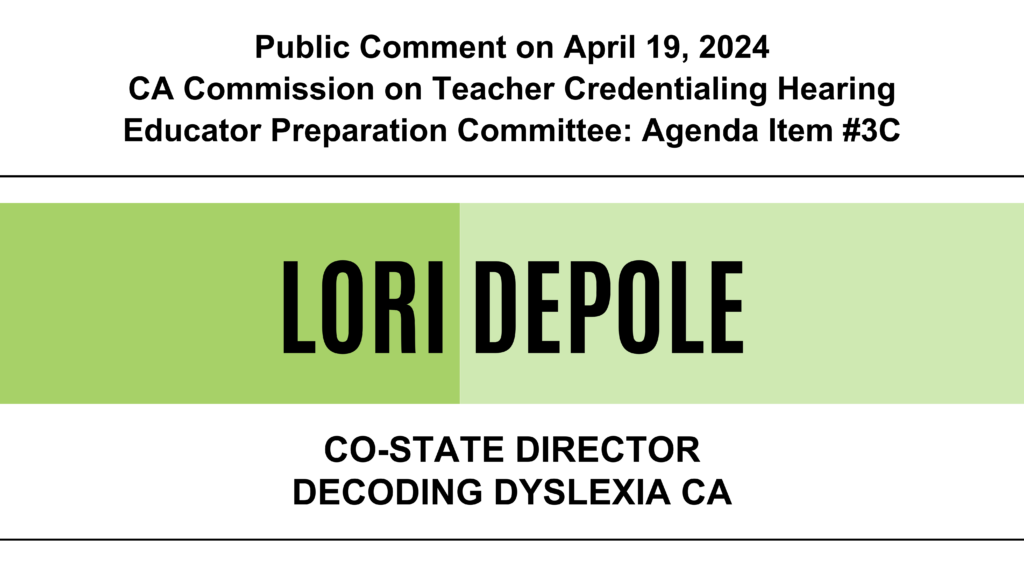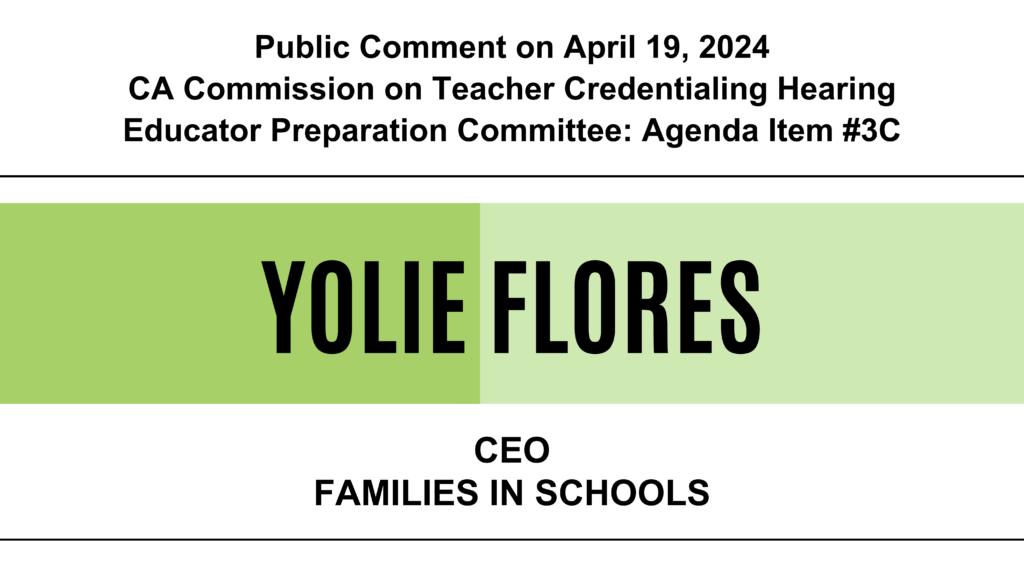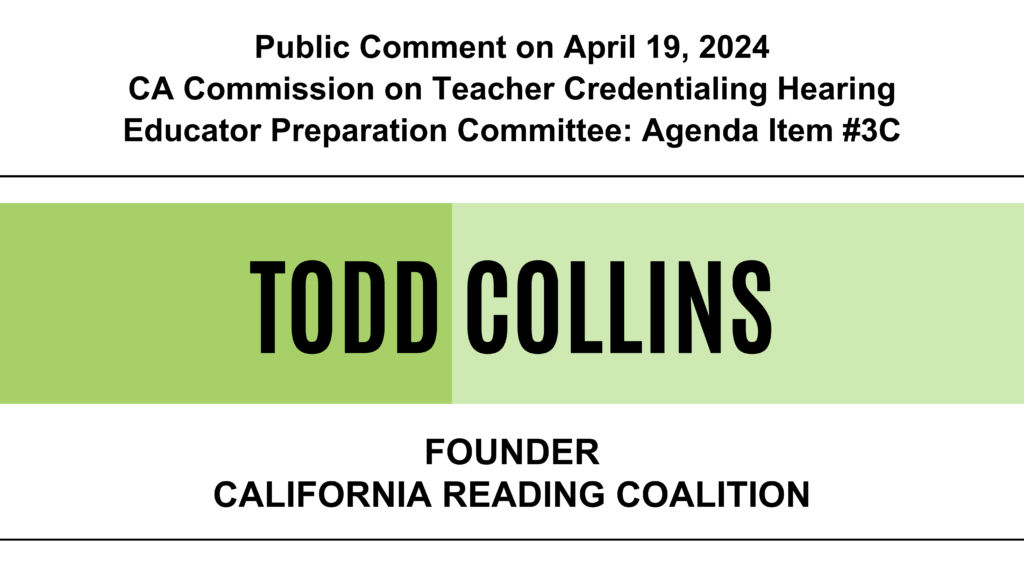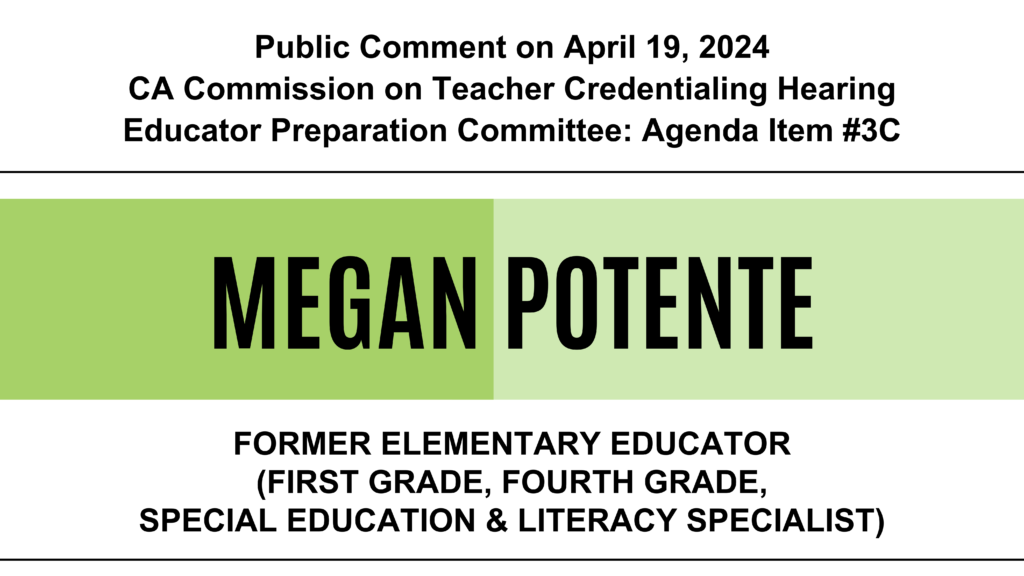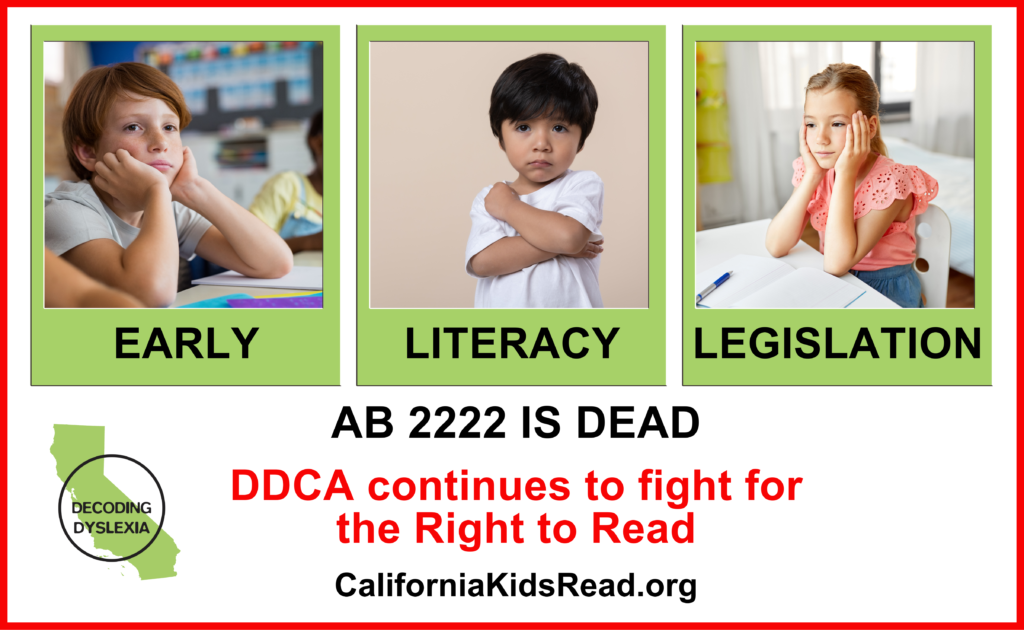On April 19th, the California Commission on Teacher Credentialing voted unanimously to reaffirm Mills College at Northeastern’s (MC:NU) accreditation despite a complaint filed jointly by Decoding Dyslexia CA, Families in Schools, and the California Reading Coalition.
Our complaint found the college’s new educator preparation program failed to meet the literacy teaching requirements mandated by Senate Bill 488.
This Complaint Matters
As a result of SB 488, which passed in 2022, California has new and improved literacy standards and expectations for teacher candidates and their preparation programs. DDCA fought very hard over several years for these standards because we know the solution to children’s struggles with reading are teachers who are knowledgeable about the science of reading and evidence-based teaching methods. Our educators deserve to be prepared for the critical job of teaching kids to read. CA kids’ futures depend on it.
The new literacy standards under SB 488 demand that pre-service teachers learn how to screen students for reading difficulties, including risk of dyslexia, as well as implement structured literacy in the classroom. The new literacy standards also require that teacher preparation programs incorporate the California Dyslexia Guidelines so that new teachers are better prepared to meet the needs of students with, or at risk for, dyslexia.
The above components were not found in the MC:NU course syllabi. Furthermore, their coursework paid insufficient attention to the five components identified by the National Reading Panel as necessary for reading. The MC:NU coursework emphasized typical balanced literacy practices such as guided reading, leveled texts, and running records and also included required course readings by controversial curriculum authors Fountas & Pinnell. The three-cueing method of reading instruction, which was debunked by cognitive science decades ago, was embedded throughout their coursework. Finally, the program didn’t mention how to provide additional help for struggling and multilingual students.
Failing to follow science fails kids!
The MC:NU program is one of the first new teacher preparation programs to apply for accreditation under the new literacy standards. If MC:NU’s program is accredited, this will set a dangerous precedent. The door will be wide open for what is deemed “acceptable” coursework and literacy instructional practices for all other California teacher prep programs.
The 4/19 Meeting
In addition to nine written public comments, the meeting had many call-in commenters who brought passion and expertise to the topic. We urge you to listen to the voices of those who care deeply about this issue. (To listen to the public comments, please click on the images below.)
The first two audio clips are from Maryanne Wolf and Sue Sears who were two of the literacy experts appointed by the California Commission on Teacher Credentialing to develop the new standards. In their public comments, they each expressed significant concern that MC:NU’s teacher prep program has fallen short of meeting the standard requirements.
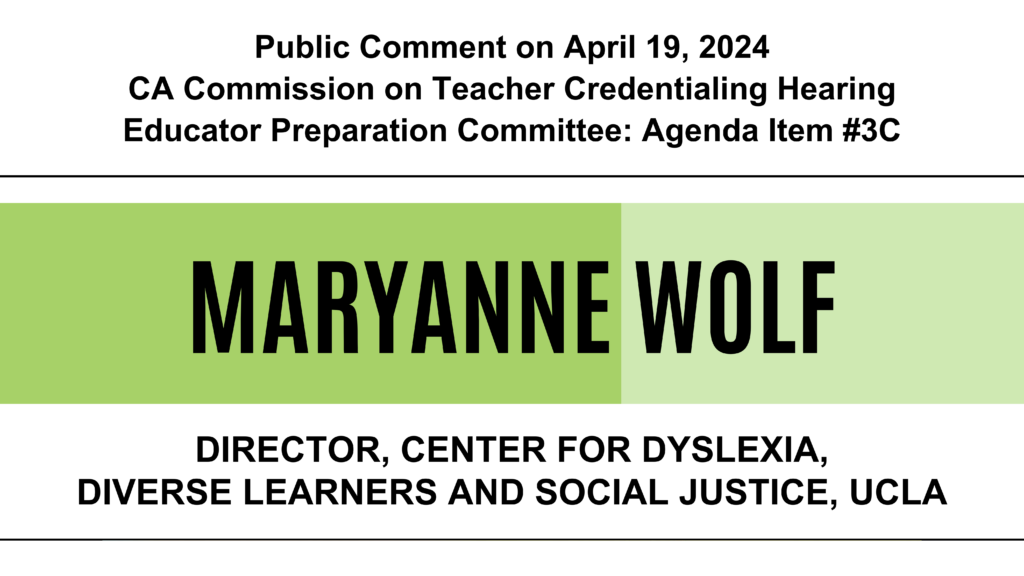
“[The new literacy standards] seem to be misunderstood at Mills College at Northeastern. It is unfortunate, but from my opinion after 30 years of intervention work, this fails to meet the standards that you [the Commission] asked us to bring to every teacher so that every teacher could be prepared to teach every child.”
“In the case of Mills College, we have three concerns [insufficient coverage of foundational skills, very little attention to reading assessment practices, and the omission of the Multi-Tiered Systems of Support, which are integral to meeting the needs of all California students]. We think the syllabi deserve further examination as does the program.”
“We sincerely hope the Committee on Accreditation and the Commission on Teacher Credentialing take into consideration the rigorous requirements institutions of higher ed must meet in order to adequately comply with [the literacy standards].”
“My team of analysts reviewed the syllabi provided by Mills College. Based on these documents, had Mills College been part of the sample of programs we reviewed for our [June 2023] report, it would have earned a grade of F for failing to provide adequate coverage of the five core components of reading instruction.”
“We are at a critical juncture as the literacy standards will not make a difference if the Commission does not hold our teacher prep programs accountable for complying with them… The [Commission] is required, under law, to ensure that the programs satisfy these new literacy teaching standards.”
“Most families simply trust. They trust that people in power, like you, will uphold the law to ensure that their children will have educators equipped to teach their children to read and to help them succeed in school. They trust the system, and so because you are the system, I am here today to ask you to investigate our complaint and ensure the law is followed so that every new teacher can effectively teach every student to read.”
“I urge the Commission to take appropriate and immediate action to investigate the complaint filed on the Mills College at Northeastern’s teacher preparation programs. There are fundamental issues at stake here. 2022’s SB 488 put into law specific key requirements for preparing new teachers to teach reading aligned with the best current evidence. Our young students deserve this evidence-based instruction and our new teachers deserve to be prepared. [Mills College at Northeastern] falls well short on meeting those requirements.”
“Running records, guided reading and three-cueing failed me as a teacher and failed my students who deserved instruction grounded in science… My story is not at all unique. Thousands of teachers are currently seeking knowledge counter to the balanced literacy methods they learned in their teacher prep [programs]. Please use your authority to enforce California’s standards for teacher preparation.”
Next Steps
The Commission voted unanimously to send the complaint back to the Committee on Accreditation (COA) for reconsideration. The COA is the body established in state statute to review programs and make final program accreditation decisions.
At the June 6-7 COA meeting, they will vote on whether to reconsider their previous approval of the MC:NU Multiple Subject program based on the complaint.
While DDCA was disappointed the 4/19 meeting did not result in an investigation of the complaint or provide technical assistance, we are heartened that there is a next step. It is now in the hands of the COA to review and determine whether the MC:NU program upholds the new literacy standards.
The evidence is clear to us that MC:NU is out of compliance with SB 488. We hope the COA uses their authority to uphold the law.
For the future of 6 million public school children in California, DDCA stands on the side of science.
Read more about the complaint here: Sharp divisions over how California’s aspiring teachers will be taught to teach reading | EdSource
And, please encourage family, friends, and colleagues to sign up for DDCA emails to stay informed on all literacy-related efforts in California.


